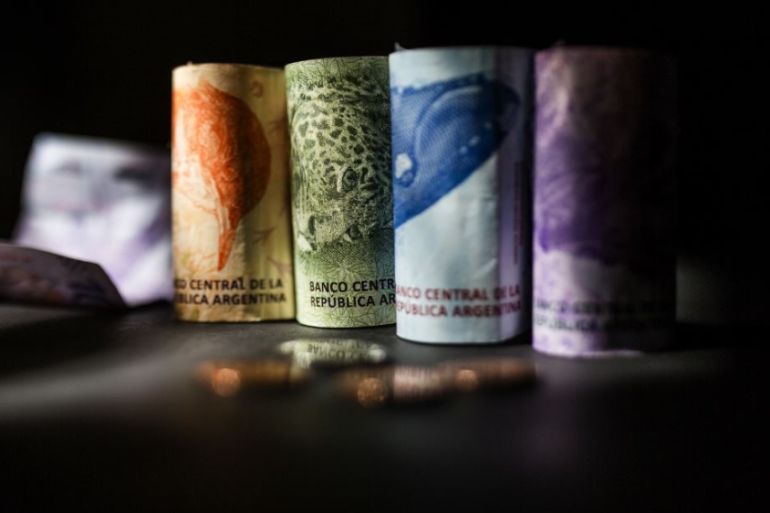Argentina’s GDP shrank 10.2 percent in Q3 compared with 2019
Economic recovery in Argentina and throughout Latin America is under threat from a fresh rise in COVID-19 cases.

Argentina’s gross domestic product contracted 10.2 percent in the third quarter of 2020 versus the same 2019 period, the government’s Indec statistics agency said on Wednesday, amid uncertainty about a possible retightening of COVID-19 lockdown measures.
Many restrictions have been relaxed since the country locked down against the pandemic in late March. The government expected a recovery to begin in the first half of next year and for gross domestic product to clock 5 percent growth in full-year 2021.
Keep reading
list of 4 itemsArgentina’s Senate passes ‘millionaire’s tax’ for COVID-19 relief
Argentina faces reckoning as debt deal clock winds down
Argentina: Provincial healthcare strained as COVID cases spread
Some 41,204 people in Argentina have died from COVID-19 so far, according to official data, with fatalities surging in the interior of the country.
There has been speculation that the government may again tighten restrictions, but officials have not said whether a tighter lockdown is under consideration.
“Companies in every industry are having trouble finding basic materials needed to produce and to sell. This is still constraining the offer in the economy,” said Mariano Sardans, head of Buenos Aires-based FDI Wealth Management.
“But when you go out to the street, you can see that a recovery is taking place compared with a very low base earlier in the year when people were basically at home doing nothing,” Sardans added.
With the central bank printing pesos to help fund the Treasury and pay for COVID-19 relief programs, consumer prices rose 3.2 percent in November and 30.9 percent in the first 11 months of the year, according to government data released on Tuesday.
Recoveries throughout Latin America are under threat from a fresh rise in COVID-19 cases, particularly in Brazil, Mexico and Chile, Capital Economics said in a note.
“Stringent restrictions and high caseloads suggest that economic activity in the region will probably get worse before it gets better,” it said.